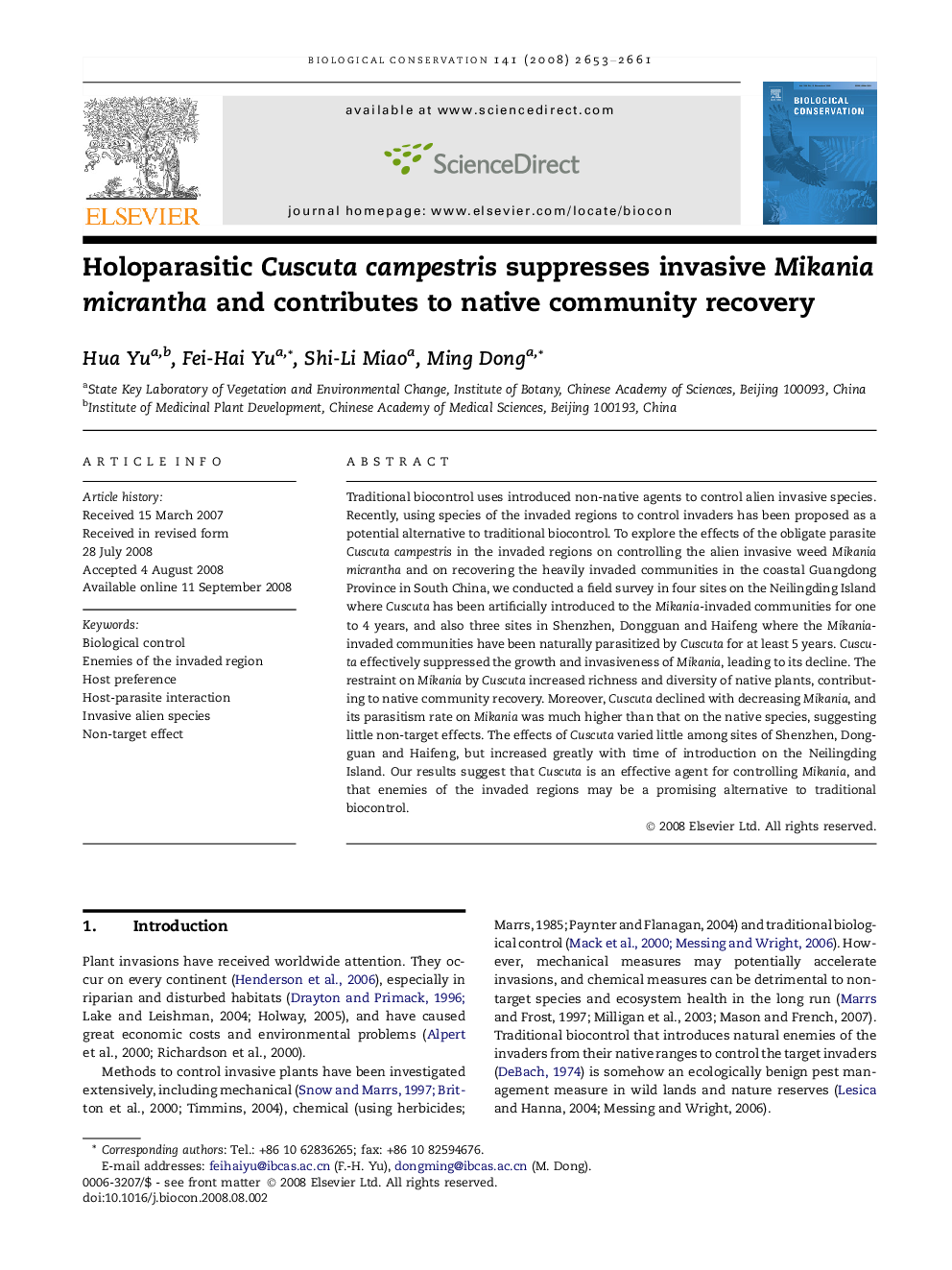| Article ID | Journal | Published Year | Pages | File Type |
|---|---|---|---|---|
| 4386651 | Biological Conservation | 2008 | 9 Pages |
Traditional biocontrol uses introduced non-native agents to control alien invasive species. Recently, using species of the invaded regions to control invaders has been proposed as a potential alternative to traditional biocontrol. To explore the effects of the obligate parasite Cuscuta campestris in the invaded regions on controlling the alien invasive weed Mikania micrantha and on recovering the heavily invaded communities in the coastal Guangdong Province in South China, we conducted a field survey in four sites on the Neilingding Island where Cuscuta has been artificially introduced to the Mikania-invaded communities for one to 4 years, and also three sites in Shenzhen, Dongguan and Haifeng where the Mikania-invaded communities have been naturally parasitized by Cuscuta for at least 5 years. Cuscuta effectively suppressed the growth and invasiveness of Mikania, leading to its decline. The restraint on Mikania by Cuscuta increased richness and diversity of native plants, contributing to native community recovery. Moreover, Cuscuta declined with decreasing Mikania, and its parasitism rate on Mikania was much higher than that on the native species, suggesting little non-target effects. The effects of Cuscuta varied little among sites of Shenzhen, Dongguan and Haifeng, but increased greatly with time of introduction on the Neilingding Island. Our results suggest that Cuscuta is an effective agent for controlling Mikania, and that enemies of the invaded regions may be a promising alternative to traditional biocontrol.
